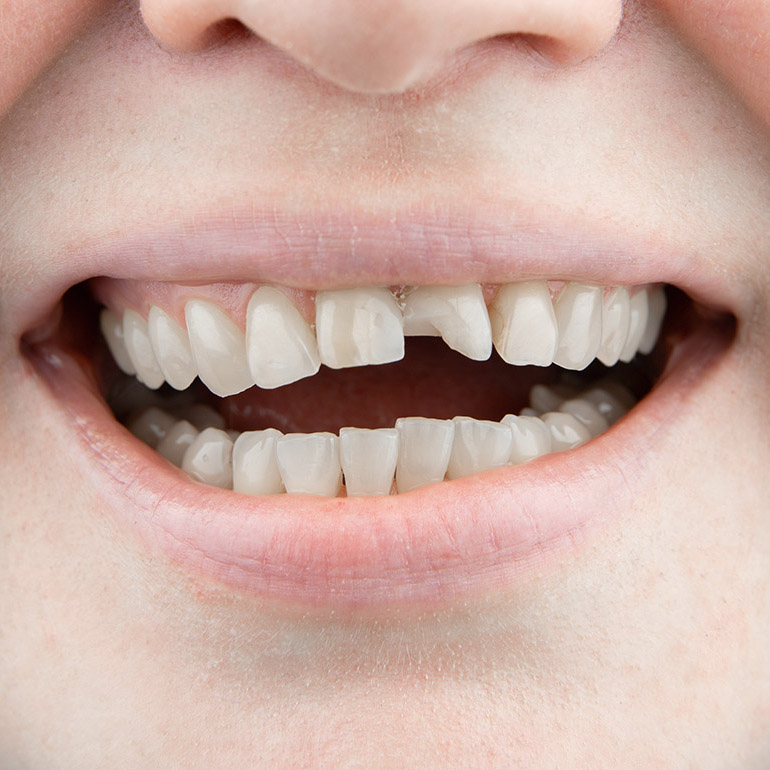How to Manage Dental Emergencies
Until You See Your Dentist
What to Do in a Dental Emergency
A dental emergency requires immediate attention. It can be a toothache that you can’t ignore. Or a chipped tooth from an accident. Possibly, even bleeding from a cut lip. Regardless of the case, you need dental care fast.
Call your dentist immediately. Many dental clinics offer an after-hours emergency number for patients. If you can’t reach your dentist, visit an emergency dental clinic, urgent care, or hospital ER.
At Ellerslie 66 Dental Clinic, we welcome walk-ins for urgent dental care. You can also call ahead at (780) 705-9866 to minimize wait time for emergency dentistry services.

How to Handle Dental Emergencies Before You Can Visit Your Dentist
Whenever possible, visit a dentist as soon as you can if you have a dental emergency. Early intervention helps prevent complications like infection, tooth extraction, or permanent damage. The longer you wait, the higher the risk of more serious dental issues that you may experience.
If it takes time to arrive at the dentist, here are ways to manage dental emergencies before an emergency dentist can treat your dental injury or issue. However, always remember that the measures mentioned below are TEMPORARY. They don’t replace the vital dental care you need for your emergency.
Managing Excruciating Toothaches
A toothache can be a sign of a bacterial infection, a damaged tooth, lodged food debris, or gum irritation. Severe toothaches don’t improve on their own and require immediate dental attention.
Clean the Inside of your Mouth
-
- Rinse your mouth with warm salt water. Warm water helps dissolve salt better. Salt water has antibacterial properties.
- Use dental floss to remove any stuck food debris between the teeth.
Alleviate Pain and Swelling
-
- Apply a cold compress to the outside of your mouth or cheek if you feel the gum area of the problematic tooth is swollen.
- Take over-the-counter (OTC) pain relievers to alleviate the toothache.
- Acetaminophen starts to work within 30 minutes to an hour and lasts for 4 to 6 hours.
- Ibuprofen can take effect within 20 to 30 minutes and lasts for 6 to 8 hours.
- Naproxen can take an hour to take effect and lasts for 8 to 12 hours.
- Never put the medicine against your gums or teeth, as it can burn your gum tissue.
First Aid for a Chipped, Broken, or Badly Cracked Tooth
Traumatic injury can cause a chipped, broken, or cracked tooth. If a tooth is broken, it can expose the delicate tissue inside and risk tooth pain and infection unless immediate dental intervention is received.
Prepare Your Tooth for Restoration
-
- Collect and rinse as many broken pieces of your tooth as you can.
Clean the Inside of Your Mouth
-
- Rinse your mouth with warm salt water
Control the Bleeding
-
- If the tooth or gum area is bleeding, apply a piece of gauze on the area for 10 minutes or until the bleeding stops.
Manage Pain and Swelling
-
- For pain and swelling, apply a cold compress to the outside of your mouth or cheek where the broken tooth is.
What to Do If a Tooth Is Knocked Out
Traumatic injury can also risk a knocked-out tooth, which still has healthy tissue for dental restoration. The chances of saving a knocked-out tooth get smaller the longer it takes to visit the dentist.
How to Safely Put the Knocked Out Tooth Back In Before You Can Visit Your Dentist
-
- Retrieve the tooth. You can rinse off the tooth root with water, but don’t scrub or remove any attached tissue fragments.
- Try to put your tooth back into its socket correctly. However, DON’T forcibly reinsert your tooth in its socket.
Save Your Tooth for Restoration
-
- If you can’t reinsert your tooth, contain it in a small container of milk or a cup of water with a pinch of salt. You can also buy a Save-a-Tooth tooth preservation kit that allows you to save knocked-out teeth for up to 24 hours. However, your dentist has the best chance of reinserting your tooth when it’s returned to its socket in an hour.
How to Manage a Partially Dislodged or Extruded Tooth
An extruded or partially dislodged tooth can cause pain and swelling due to the traumatic injury. Visit your dentist as soon as possible to re-align your tooth and reduce the risk of infection.
Manage Pain and Swelling
-
- Apply a cold compress to the outside of your mouth or cheek to help alleviate the pain and swelling in the affected area.
- Use OTC pain medication to relieve discomfort further.
Emergency Steps for a Dental Abscess
Abscesses are serious infections that can damage your teeth and gums and spread to other parts of your body.
Relieve Pain and Draw the Pus Close to the Surface
-
- Alleviate pain and draw the pus to the surface by rinsing your mouth with a saltwater solution made from a cup of water and 1/2 teaspoon of salt, multiple times a day.
What to Do with Broken Wire in Braces
Broken wires can cause pain, discomfort, and even cuts and abrasions. It also makes the bracing treatment less effective. Schedule an emergency appointment with your orthodontist as soon as possible.
If a Wire Breaks
-
- If a wire breaks out from the bracket and sticks out on your cheek, tongue, or gum, use a clean cotton swab to push the wire into a more comfortable position.
- If you can’t reposition the wire, over the end with orthodontic wax, a small cotton ball, or a piece of gauze until you can visit your orthodontist.
- Never cut the wire off, as you could risk swallowing it or inhaling it into your lungs.
What to Do If You Lose or Break a Dental Filling
Eating hard or crunchy foods, or even accidentally biting your fork, can cause a dental filling to break. If not treated, the affected and vulnerable tooth is exposed to bacteria and sugar, further compromising its integrity.
Use a Temporary Filling Before You Can Visit Your Dentist
-
- Use a piece of sugarless gum in the cavity as a temporary filling (don’t use sugar-filled gum as it will cause pain from the bacteria of your mouth consuming the sugar on your vulnerable tooth), or
- Use an OTC dental cement as a temporary filling.
Handling Soft Tissue Injuries and Bleeding in the Mouth
Soft tissue injury can impact your oral health and increase the risk of infection that can spread to other parts of your body.
Clean the Inside of your Mouth
-
- If you’re experiencing injury and bleeding in the tongue, cheeks, gums, or lips, rinse your mouth with 1 cup of water mixed with 1/2 teaspoon of salt. Saltwater has antibacterial properties that can reduce the amount of bacteria inside your mouth.
Control the Bleeding
-
- Control bleeding by applying a moistened piece of gauze for 15 to 20 minutes. You can also use a moist, caffeinated tea, as it contains tannic acid that shrinks blood vessels and slows down bleeding.
For Relief from Pain and Swelling
-
- Use a cold compress to the outside of your mouth or cheek in the affected area for 5 to 10 minutes to further control bleeding, reduce swelling, and minimize pain.
Temporary Care for a Broken Dental Crown
A broken dental crown exposes a vulnerable and broken tooth to the bacteria and sugars in your mouth.
Clean the Inside of your Mouth
-
- Use warm saltwater as a mouth rinse to reduce the bacteria inside your mouth.
Try to Restore Your Tooth
-
- When possible, apply OTC dental cement, toothpaste, or denture adhesive to the inner surface of the crown and then reposition it over the tooth.
Manage Pain from a Broken Dental Crown
-
- If you can’t and you’re experiencing pain from the broken tooth, use a cotton swab to apply a small amount of clove oil to the sensitive area.

Walk Into Our Emergency Dental Clinic in Edmonton Today
Even with emergency management on your end, it may not be enough to save your natural tooth. During dental emergency care, your dentist may need to extract your tooth due to dental trauma or decay. Your dentist will discuss replacement options if you need a tooth extraction.
For all cases of dental emergencies, it’s important to see your emergency dentist as soon as possible. At Ellerslie 66 Clinic, we welcome walk-ins so that you get the emergency dental care you need immediately. Visit us at our clinic today for immediate care. You can also call us at (780) 705-9866 so we can quickly anticipate your needs.
